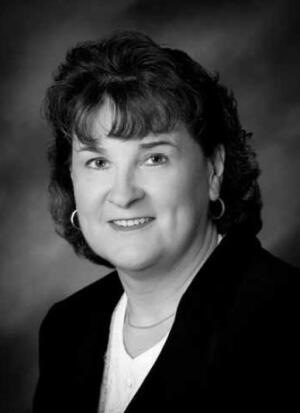by
Brendon Nafziger, DOTmed News Associate Editor | March 04, 2013
From the March 2013 issue of HealthCare Business News magazine
DMBN: How did you get involved in nursing – and what made you want to be a perioperative nurse in particular?
DS: It may sound simple, but like many nurses, I always wanted to help people and I felt that this was the profession that would best meet that need. During my nursing education, we had 12 weeks of experience in the operating room and we were allowed to scrub and circulate and I loved every minute of it. There was never a doubt in mind where I wanted to work after I graduated. Fortunately the OR supervisor believed in hiring new graduates into the OR. I got the job I wanted and never looked back.
DMBN: What was it like to be president of AORN’s board for the 2012-13 term?
DS: Being president has been a wonderful experience. As elected board members, we are responsible for sharing our experience and vision for safe perioperative nursing practice with the board, staff and the association members. As president, I also wrote a monthly column for our peer-reviewed monthly publication, AORN Journal. Each month, I expanded on my term theme of collaboration to encourage members to consider their role as surgical team members. I have written how AORN is a member and active participant of many different organizations, both in perioperative care and health care in general. I highlighted our participation in ANA’s Joining Forces Campaign, and discussed diversity in both the workplace and our association membership. Recognizing that the work of the organization would not get done without the members that volunteer their time and talent both on committees and as elected leaders, I asked current and past board members to contribute to the column and to describe for our members what serving the association meant to them. Two of the columns focused on OR instrumentation, both the important role of our colleagues in sterile processing as team members and the OR’s role in the care and handling of those instruments. Another column focused on the importance of maintaining civility toward all team members and what an impact incivility has in causing errors. I also have represented AORN at professional meetings in the U.S. and abroad — no doubt the opportunity of a lifetime.
DMBN: What are you most proud of accomplishing during your term, and what advice do you have for your successor Rosemarie T. Schroeder on how to make the most of her term?
DS: My focus on collaboration, especially with our colleagues in sterile processinghas been a priority and, I believe, an area of accomplishment. Our committee work on aspects of workplace safety, specifically sharps safety and ergonomics, is influencing practice across the country. This year, we are addressing issues related to “distractions” in the OR. This association has extensive reach and influence in safe surgical practices for the surgical nurse and Rosie knows as well as I our role is to represent the members during strategic planning and board deliberations. We both know that it is not about the individual president but rather working with the board and headquarters staff to determine where we want to be in 3-5 years and how best to get there.
DMBN: This year AORN is hosting its 60th Congress. Of all the many changes in perioperative nursing since the first Congress was held, what do you think has been the biggest?
DS: There is a saying that “an OR is an OR,” but surgical practice has changed dramatically and will continue to evolve rapidly. Nursing practice and industry are working together to develop and safely use new instrumentation that is smaller and yet in many ways, more complicated. We’ve moved from long-term stays to outpatient or same day surgery, smaller incisions and faster recoveries. If we could look at a snapshot of the industry floor from 1953 and compare it to the floor of 2013, those changes would be highly evident. Then, as now, our attendees share the common goal of providing safe patient care.
DMBN: What are you most excited for at this year’s show?
DS: I’ll see the many friends I’ve made over the years, and I’ll also have an opportunity to learn new skills that I can take back to the facility where I work. My family will be with me through the entire Congress and I’m excited to share with them my association’s big event where they can experience first-hand the passion of perioperative nurses.
